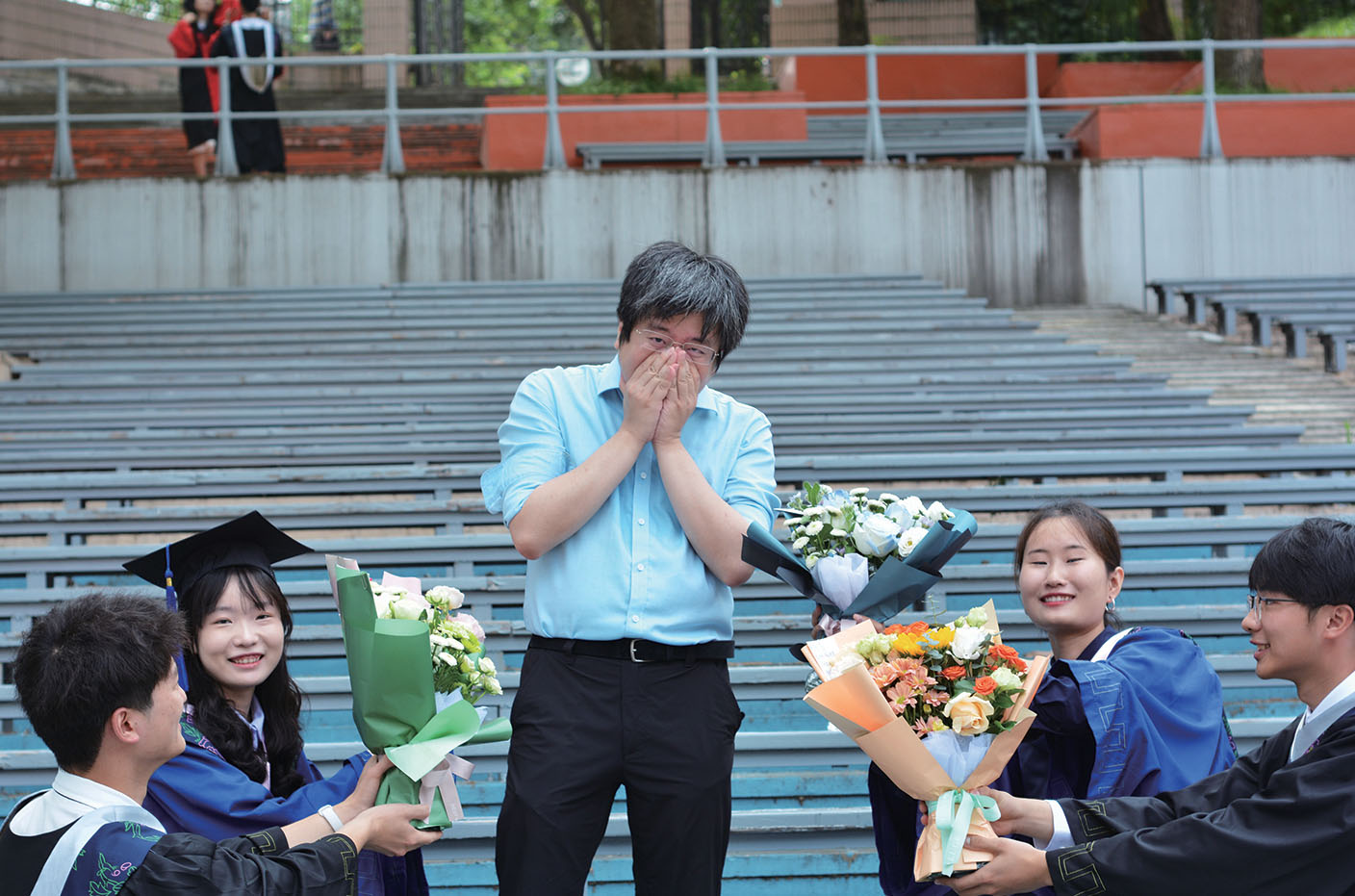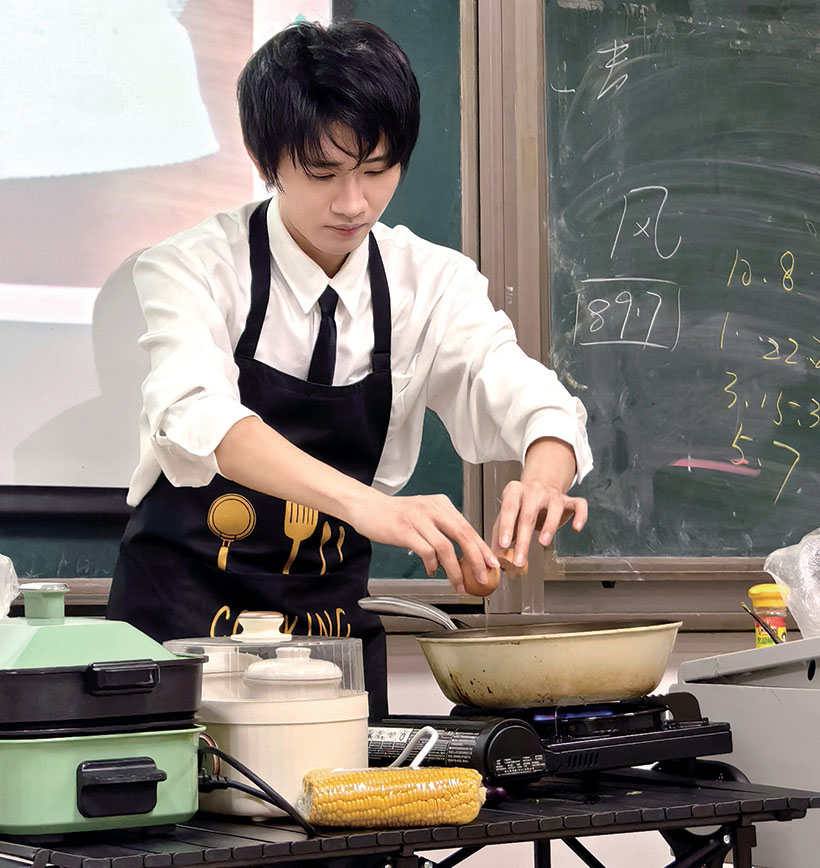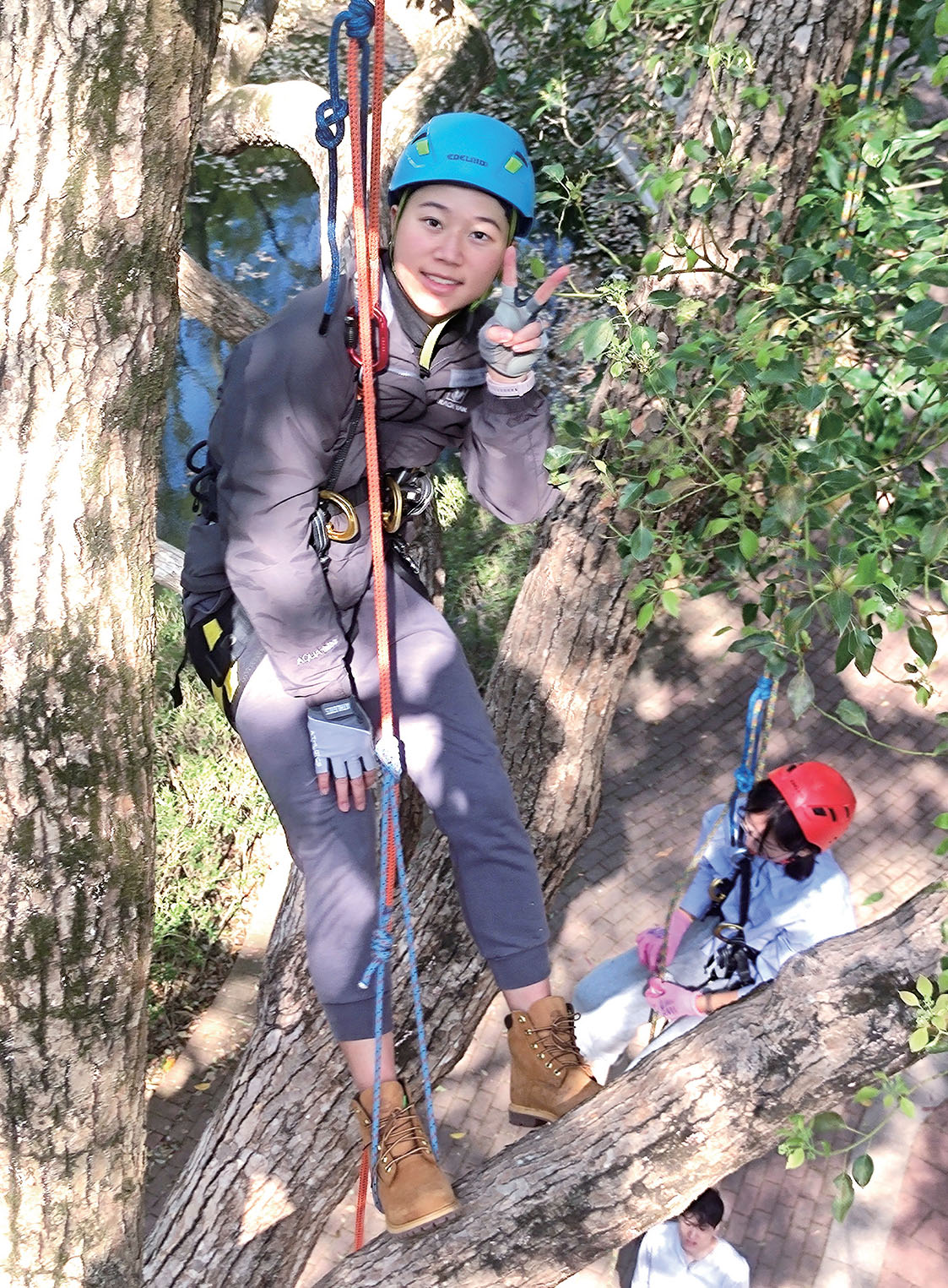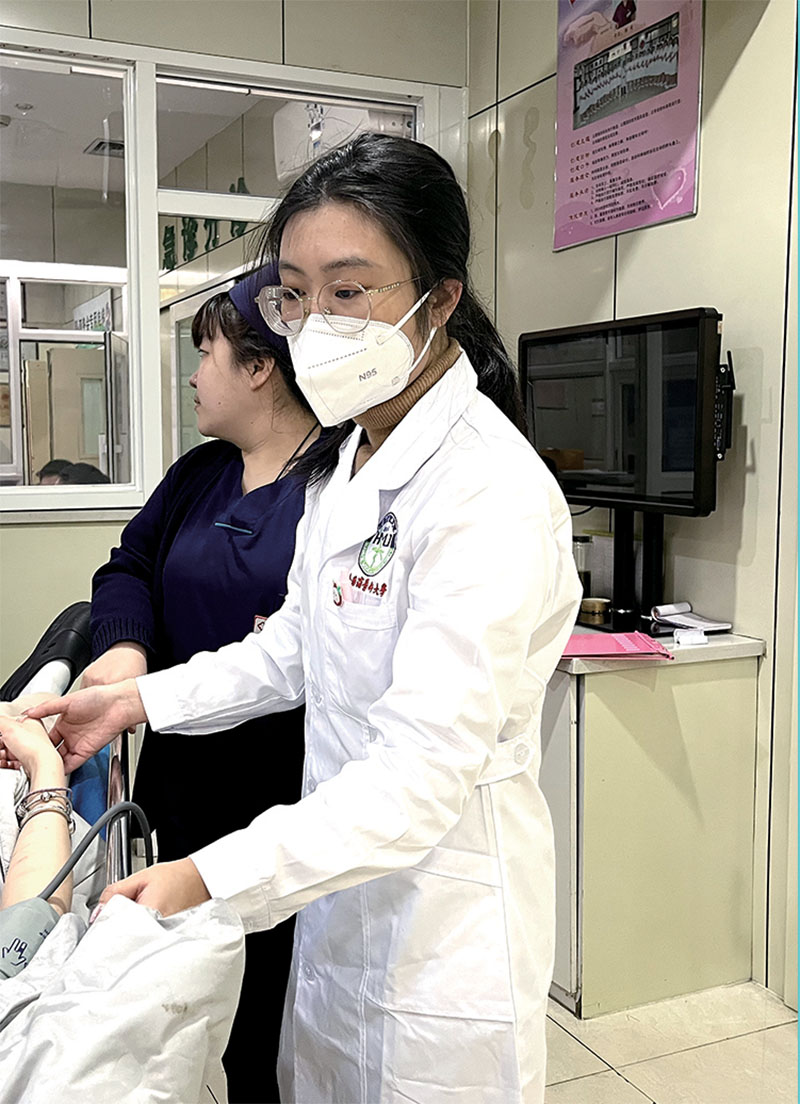Universities are increasingly offering innovative courses that focus on practical life skills, helping students prepare for the real world beyond academics.

In a university classroom, 27-year-old teacher Fu Yiqiang, dressed in a suit and apron, cooked for his students using an electric frying pan.
This wasn't a cooking class but an elective course titled "Guide to Adult Life" at the Communication University of China, Nanjing (CUCN), in Jiangsu province, which Fu began teaching in the second semester of 2024.
Fu, a 2018 graduate of CUCN, started his career as an e-sports commentator. His success in the field earned him an invitation to return to the university in 2019 to teach e-sports commentary courses.
However, Fu soon noticed a challenge many college students face outside their academic work.
"Throughout our schooling, we were always told to focus on studying, but few taught us how to live," Fu said. "After graduation, we're suddenly expected to navigate the real world on our own, yet there's so much we don't know."
READ MORE: Empowering dreams
This realization inspired him to create the Guide to Adult Life course.
The course covers a wide range of real-life situations, equipping students with practical skills for both university life and their transition into society. Topics include visiting a hospital, basic cooking, understanding consumer rights, advice on renting, labor laws, and resume writing.
"This is the most challenging course I've ever prepared," Fu admitted.
To ensure the lessons were relevant and engaging, Fu researched reliable sources and even took online courses to learn the material himself before teaching it to his students.
The course quickly became a hit. Initially designed for 100 students, nearly 200 enrolled, with many in standing-room attendance.
Fu is also a video content creator who regularly shares his experiences as a young university teacher.

In September 2024, he began to post segments of his course on Chinese social media platforms like Bilibili and Douyin, where his content resonated with many young netizens. Today, Fu's channel has more than 5 million followers, mostly university students.
"I believe this course meets the real needs of students," Fu said. "University education isn't just about acquiring knowledge; it's about developing critical thinking and learning how to live a fulfilling life."
Yu Feng, a psychology professor at Wuhan University (WHU) in Hubei province, shares a similar perspective.
In 2021, Yu's lecture on "The Psychology of Love" gained immense popularity, leading to its inclusion in the university's general elective courses.
It later evolved into "Positive Psychology", which covers a broader range of topics and has become one of the most sought-after electives at WHU. Even the largest lecture halls struggle to accommodate all the interested students.
"While traditional psychology focuses on addressing mental health issues, positive psychology aims to help people achieve happiness," Yu explained.
The Psychology of Love remains the most popular section of the course.
In these sessions, Yu encourages students to discuss their relationship challenges and uses psychological principles to help them understand the stages of intimate relationships — from initiation and growth to decline — and how to manage emotions when a relationship ends.
"I hope this course helps students approach life with a more positive mindset," Yu said. "Teachers present ideas and knowledge in ways that students both enjoy and find meaningful — that's what makes a great teaching method."

More than knowledge
Hou Xin, a 21-year-old philosophy student at Xiamen University (XMU) in Fujian province, feels that universities are increasingly attuned to students' needs. "University education now focuses on developing our overall abilities, such as life skills and emotional management, not just academic knowledge," she said.
In her third year, Hou finally secured a spot in XMU's popular tree-climbing course during the first semester of 2024 — a class she had been eager to join since her freshman year but had always missed out on due to its high demand.
Introduced in 2012, the course was the first of its kind among universities on the Chinese mainland.
Every Wednesday morning from 8 to 10 during the semester, Hou and her classmates gathered in the campus' mango tree grove for class. Students worked in pairs, with one climbing while the other held the rope to ensure safety.
Hou cherished the peaceful moments spent in the trees, where she could unwind and watch ants crawling along the branches.
"It's so refreshing to start my day with sunshine and morning mist, rather than a stuffy classroom," Hou said. "This activity helps me connect with myself, nature, and the spirit of teamwork."
She added that the course isn't about climbing as high or as fast as possible but about enjoying the experience.
"This is one of the key differences between the tree-climbing course and traditional physical education classes," explained Zheng Daxiong, one of the PE teachers leading the course. "It's not just about building physical strength; it's also about fostering a deeper connection between individuals and nature."
Zheng and his students established a tree-climbing association at the university. The group's activities extend beyond tree-climbing to include public service.
For example, after a typhoon struck Xiamen in 2016, the association helped prune ancient trees that had been damaged and were inaccessible to heavy-duty aerial vehicles.
Interestingly, none of these courses feature traditional, quantifiable final assessments. Instead, students are encouraged to reflect on their learning in various ways.
In Fu's course, for instance, students share how they've applied the course content to their lives, with submissions ranging from travel guides to homemade cake recipes.

Rooting in life
Zhou Yi, a graduate student at Harbin Medical University (HMU) in Heilongjiang province, was given a unique final assignment for her "Death Education" course: to write her own epitaph.
"On campus, we celebrate youth, but we rarely address the concept of death," Zhou said. "However, it is only by understanding death that we can truly appreciate life."
In her epitaph, Zhou wrote: "Every individual born through sexual reproduction is unique. Since most of the genetic combinations that could have occurred never had the chance to exist, we are incredibly fortunate to be among the one in a million. Our very existence is, indeed, a miracle."
Yin Mei, director of the School of Humanities and Social Sciences at HMU, leads the course.
According to her, over the past decade, this course has evolved from a general education elective into a comprehensive program that includes lectures, salons, and book clubs. It attracts a diverse group of students from the humanities, medical fields, and clinical medicine.
ALSO READ: Breaking 'barrels' and glass ceilings
"Being a doctor is about engaging in a dialogue with life," Yin said. This is why she designed the course to combine philosophical discussions about death with practical case studies to guide future medical professionals in their careers.
Zhou took the course during her sophomore year, and it continues to influence both her personal life and her work as a graduate student.
While interning at a hospital, she encountered a patient who had attempted suicide and was taken to the emergency room. As the patient waited for monitoring, Zhou gently held her wrist.
"Even though she might not have been fully conscious, she could still feel the warmth of my hand. This is the 'warmth of life'I could offer her, shaped by my education," Zhou said.
Contact the writers at mengwenjie@i21st.cn



